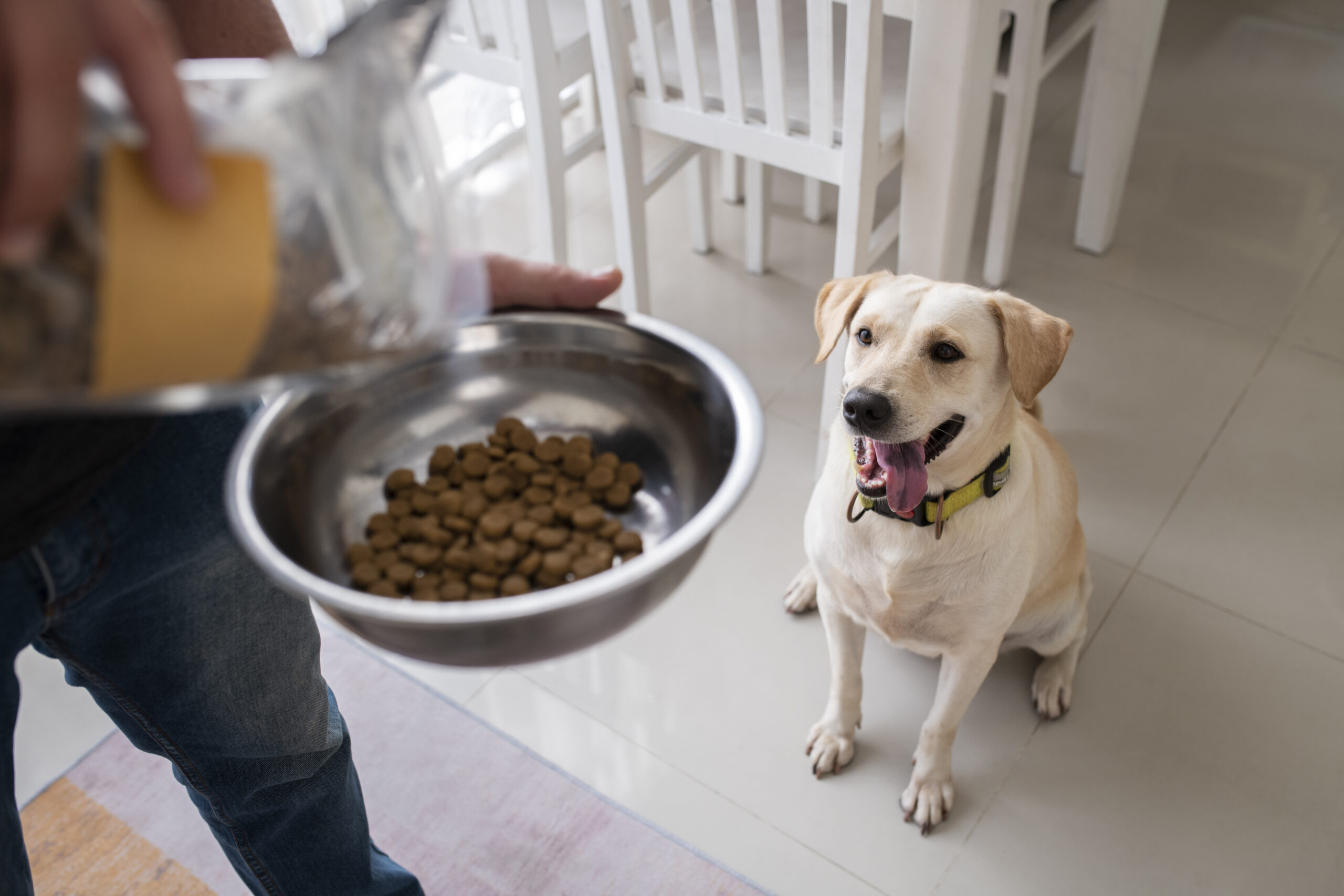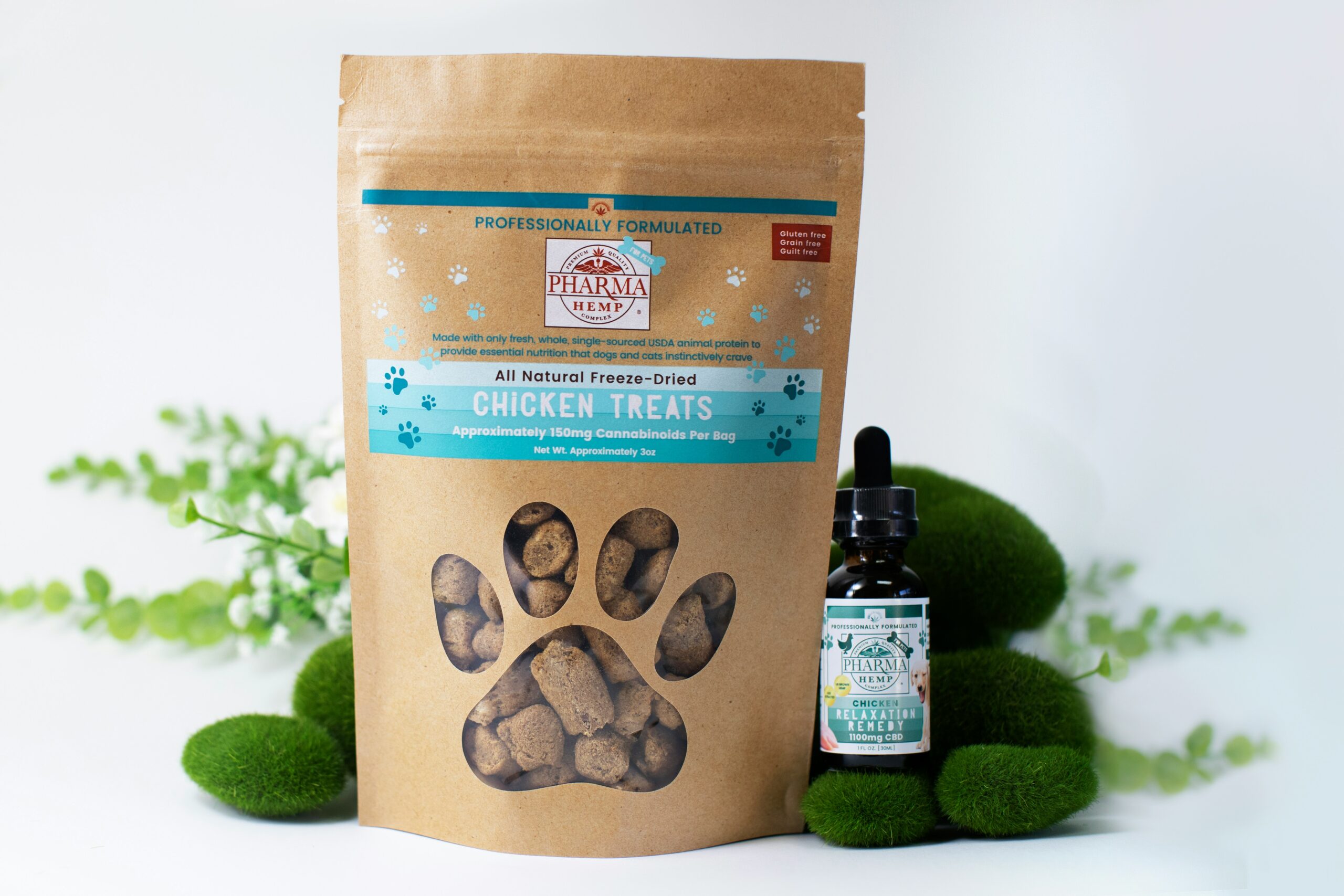Proper dog nutrition is essential for their overall health. Just like humans, dogs require a balanced diet to boost their immunity, energy level, and coat shine.
Nutritional Needs of Dogs
Proper dog nutrition that contains all macro, as well as micro-nutrients, is necessary for your dog. It is equally important to know about your dog’s nutrition needs because large breeds require a lot of food as compared to small hybrids.

Key Nutrients For Dog Nutrition
1- Proteins for Dogs
Protein is an essential nutrient for dogs as it plays a crucial role in muscle development and repair. It is imperative to provide your best companion with adequate protein in their diet to maintain their overall health. You can incorporate proteins into your dog’s diet by feeding them poultry, fish, eggs, and plant-based alternatives like soy. These protein sources provide the amino acids required for your dog’s body to function correctly and maintain good health. It’s essential to consult with your veterinarian to determine the appropriate amount of protein needed for your dog’s specific needs and lifestyle.
2- Carbohydrates for Dogs
To provide a quick and easily accessible source of energy, it is important to consume foods that are rich in carbohydrates. Grains such as rice, wheat, and oats, as well as vegetables like potatoes, sweet potatoes, and corn, are excellent sources of carbohydrates. Legumes such as lentils, chickpeas, and beans are also great options. Carbohydrates are an essential component of a healthy diet and play a vital role in providing the body with energy. So, it’s important to include these foods in your daily meals.
3- Fats for Dogs
In addition to providing energy, fats play a crucial role in maintaining healthy skin and coats for pets. Omega-3 and omega-6 fatty acids are the essential fatty acids that cannot be synthesized by the body and must be provided in the diet. Good sources of omega-3 fatty acids include fish oil, flaxseed, and canola oil. Omega-6 fatty acids are found in chicken fat, corn oil, and soybean oil. These fats aid in maintaining healthy skin and fur, reducing inflammation, and improving immune function in pets.
4- Vitamins for Dogs
If you’re looking to improve your body functions, incorporating vitamin-rich foods into your diet can be a great place to start. Fruits and vegetables are excellent sources of vitamins and minerals that can help boost your immune system, support healthy skin and hair, and improve overall energy levels. Some vitamin-rich fruits to consider adding to your diet include berries, citrus fruits, kiwis, and melons. Similarly, dark leafy greens like spinach and kale, as well as cruciferous vegetables like broccoli and cauliflower are rich in vitamin and mineral.
5- Water for Dogs
It is important to note that water is a basic and essential component of life. Therefore, it is essential to ensure that there is adequate access to clean and safe drinking water. Access to plenty of water helps to keep the body hydrated, which is crucial for many bodily processes such as digestion, circulation, and temperature regulation. It is also necessary for the proper functioning of various organs, including the kidneys, liver, and brain.
Dog Food Guide
1- Balanced Diet
- Be careful in choosing the food for a dog. Also, consult with a veterinarian.
- Firstly, understand the age and breed of the dog then determine the food portion.
When it comes to choosing the right food for your furry friend, it’s important to read caution for dog food ingredients before making any decisions, it’s always a good idea to consult with a veterinarian who can give you professional advice based on your dog’s specific needs.
To get started, take into account your dog’s age and breed. Different breeds have different nutritional requirements, so it’s important to choose a food that meets their unique needs. Additionally, age can also play a role in determining the right food portion for your dog.
2- Regular Feeding Schedule
- To maintain energy levels set a feeding routine.
- Obesity causes many health issues so, avoid it.
Maintaining a proper feeding routine is essential to keep your energy levels high throughout the day. It is recommended to have three meals a day at regular intervals to ensure that you have a steady stream of energy. Skipping meals or having irregular eating patterns can lead to a drop in your energy levels, making you feel sluggish and tired.
Obesity is a serious health issue that can cause a range of health problems such as diabetes, heart disease, and high blood pressure. Eating a balanced diet that includes plenty of fruits, vegetables, and whole grains can help you maintain a healthy weight. Additionally, regular exercise can also help you stay healthy and avoid obesity.
3- Include Healthy Dog Treats
- Always use a small portion of food as rewards.
- Don’t use high-calorie treats because they cause obesity.
When rewarding your pet with food, it’s important to keep in mind the portion size. Always use a small amount of food as a reward, as overfeeding can lead to health problems. It’s also recommended to avoid using high-calorie treats, as they can contribute to weight gain and other health issues in your furry friend. Instead, opt for low-calorie treats or even non-food rewards such as praise, playtime, or attention to ensure your pet stays healthy and happy.
4- Add Dog Supplements
- Consult with a vet before using any supplements.
- Make sure the use multivitamins to maintain joint health and energy.
It is highly recommended to consult with a licensed veterinarian or a certified animal nutritionist before incorporating any kind of supplements into your dog’s diet. Every dog has unique nutritional requirements, and the wrong supplements in excessive quantities can cause adverse effects on their health.
When it comes to maintaining joint health and energy, the use of multivitamins can be beneficial. Multivitamins contain a variety of essential vitamins and minerals that support the proper functioning of a dog’s body, including their joints and muscles.
5- Playing Games
- Make a gaming schedule. It can help to regulate the overall health and energy levels.
- The dog’s breed, age, and fitness level are equally important for arranging a schedule.
Creating a gaming schedule can be a useful way to manage your time and energy levels. By setting aside specific times for gaming, you can ensure that you are able to balance your gaming activities with other important aspects of your life, such as work, school, and social activities.
When creating a gaming schedule, it is important to consider the needs of your furry friend as well. Your dog’s breed, age, and fitness level should all be taken into account when deciding on the timing and duration of your gaming sessions. For example, certain breeds may require more exercise or interaction than others, and older dogs may need more rest and relaxation.
6- Keep an eye on various issues
- Keep an eye on your dog’s weight and adjust the diet accordingly.
- Check energy levels, coat condition, and overall health.
It is important to monitor your dog’s weight regularly and make adjustments to their diet as necessary. Overfeeding or underfeeding can lead to health problems, so it’s essential to keep a watchful eye on your dog’s calorie intake. Additionally, you should regularly check your dog’s energy levels, coat condition, and overall health. If you notice any changes in these areas they need to see a veterinarian for a check-up.




Your article helped me a lot, is there any more related content? Thanks!